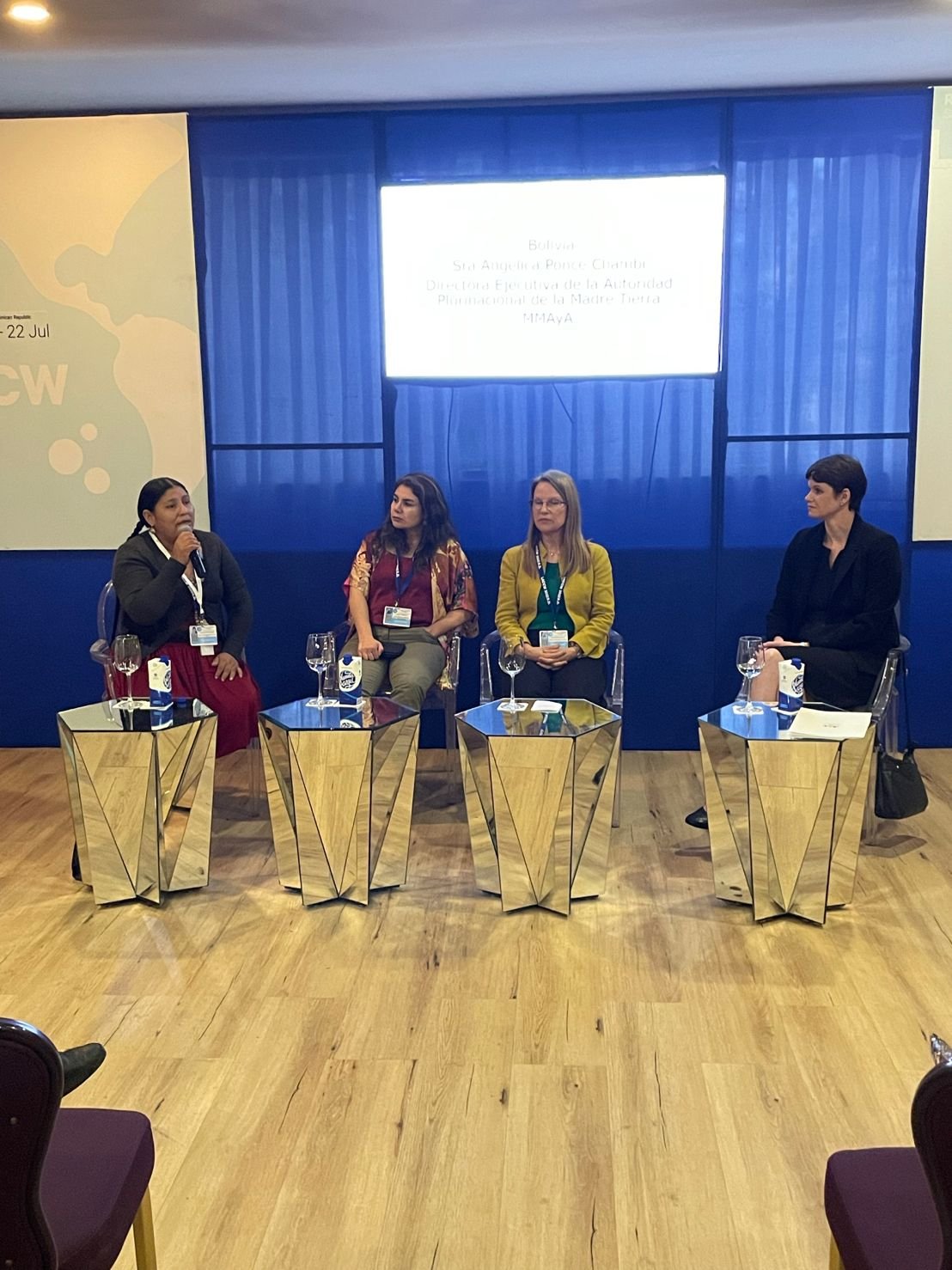LAC Climate Week Reflections
Panelists from the 21 July event “Innovation in Water: Showcasing the Adaptation Action Coalition’s progress on water resilience in Latin America and the Caribbean”
AGWA participated in last week’s UNFCCC Latin America and the Caribbean (LAC) Regional Climate Week, hosted by the government of the Dominican Republic in Santo Domingo. Regional climate weeks serve as a platform for collaboration and learning to advance climate change responses at the regional level.
In collaboration with the Adaptation Action Coalition, AGWA hosted the event, “Innovation in Water: Showcasing the Adaptation Action Coalition’s progress on water resilience in Latin America and the Caribbean.” The event featured outcomes of the Water Tracker for National Climate Planning, implemented in Costa Rica, where initial results revealed that water resources are well understood and integrated into national climate planning instruments, but opportunities remain to better link water between sectors and to include additional flexibility in their plans to account for uncertainty in future availability of water.
Invited speakers from around the LAC region shared experiences with water-centric adaptation.
Ms. Karina Barrera, Undersecretary of the Climate Change of the Ministry of Environment, Water, and Ecological Transition in Ecuador shared the Project Aicca initiative, aimed at developing sustainable and ecologically responsible small and medium scale hydropower. Representing the Authority of the Mother Earth in Bolivia, Mrs. Angélica Ponce spoke about the importance of water security and integrating traditional knowledge as foundations of meeting climate adaptation goals. Mrs. Ligia Castro, Director of the Climate Change Director of the Ministry of Environment in Panamá, emphasized the need to incorporate climate change criteria into national planning and budgeting to ensure timely and adequate adaptation.
All session participants agreed on the critical point that water is at the core of effective adaptation. The discussion following the presentations emphasized that further integration of water into climate policies, strategies and programs is crucial for the successful implementation of both climate and water programs and actions. Lessons learned from these country experiences demonstrated that resilience is increased when there is engagement from all sectors and populations, including those most vulnerable and impacted by climate change. The incorporation of ancestral knowledge about water and the environment also led to better adaptation outcomes.
LAC Climate Week was an important opportunity to catalyze climate action in the LAC region in the lead up to COP27. Much of the dialogue throughout the week remained focused on mitigation. While rapidly decarbonizing our economies is extremely important, even if we reach net zero by 2050, we would still need to adapt to the changes already baked into the Earth’s climate. This is particularly true in the Caribbean, where small island states already bear the brunt of the devastating effects of rising temperatures. We need a more balanced climate conversation, and AGWA hopes to continue to tip the scales towards water resilient climate adaptation planning. Enhanced capacity building for government officials on resilient adaptation, through projects like the Water Tracker, as well as increased access to climate finance, are key steps moving forward.
LAC Climate Week was the second regional climate event put on by the UNFCCC in 2022, following the Middle East and Northern Africa Regional Climate Week in March. It will be followed by Africa Regional Climate Week 29 August to 2 September in Gabon, and Asia Pacific Regional Climate Week in early 2023.

